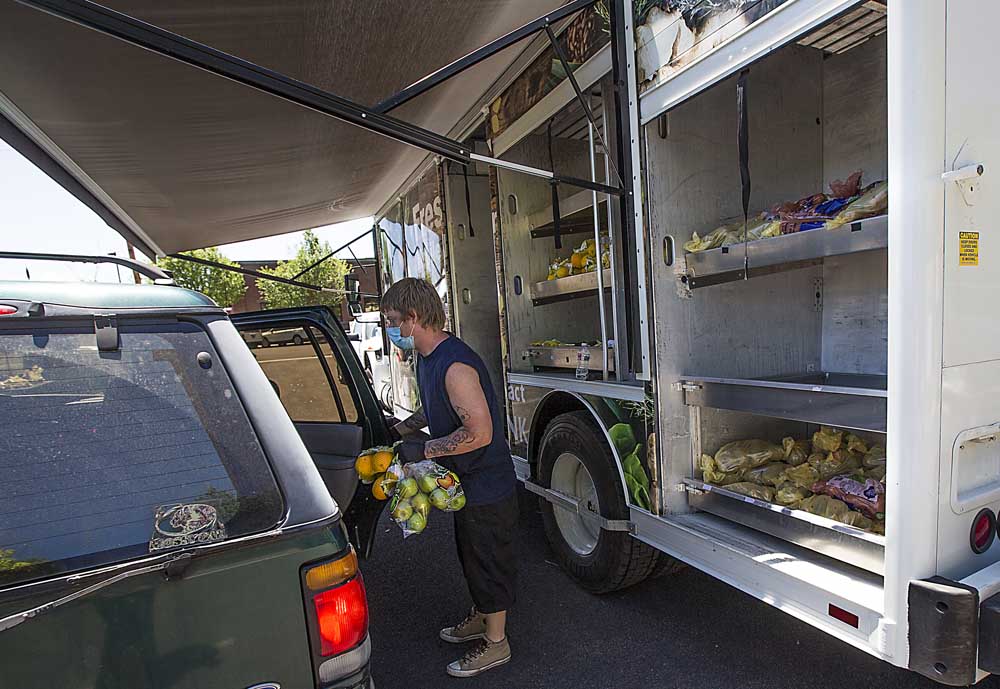Boris Fyodorov, 50, guided economic reforms in Russia
Published 4:10 am Monday, November 24, 2008

- Boris Fyodorov
Boris Fyodorov, who was prominent among the young economists responsible for post-Soviet Russia’s striking economic reforms and who served twice as Russia’s minister of finance before founding one of its first investment banks, died in London on Thursday. He was 50.
The cause was a stroke, according to the Moscow office of his investment firm, UFG Asset Management, a spinoff of the bank he founded.
Elected in 2000 to the board of Gazprom, the Kremlin-controlled natural gas monopoly, Fyodorov was an advocate for reforming corporate governance there. In particular, he battled against restrictions on foreign ownership of shares in Gazprom. The extent of his stake in Gazprom was not known, but he had said that he had more than 7 percent of the company’s shares behind him.
The bespectacled Fyodorov had a scholarly demeanor in keeping with his years as an academic. Boris Grigoryevich Fyodorov, who was born in Moscow, graduated from the Moscow Finance Institute in 1980, worked as a senior researcher at the Institute of World Economy and International Relations of the Soviet Academy of Sciences and received a doctorate from the USA-Canada Institute.
Fyodorov learned to navigate government bureaucracy and the banking system in his years as an academic and as a senior adviser to the State Bank of the USSR, and by 1990 he had been appointed minister of finance of the Russian Soviet Federative Socialist Republic, as Russia was designated within the Soviet Union.
Although that job was short-lived, in the period before the collapse of the Soviet Union he was active in developing the “500-day plan,” a sweeping economic reform plan that was tried but never fully carried out under the Soviet president, Mikhail Gorbachev. As an adviser in that same period to Boris Yeltsin, then president of the Russian republic, he promoted laws regulating banking and market-oriented companies.
After the dissolution of the Soviet Union and a brief stint representing Russia at the World Bank in Washington, he was deputy prime minister from 1992 to 1994, at one point holding the post of finance minister at the same time.
Later in the 1990s, after serving in the State Duma, or lower house of Parliament, and creating a political party — “Forward, Russia!” — he was briefly the chief of the state tax service.
In 1994, together with Charles Ryan, a Harvard-educated banker, Fyodorov created the United Financial Group, one of the country’s first investment banks. Its brokerage and investment banking divisions were sold to Deutsche Bank in 2005 during the Russian financial boom, now ended.
All along Fyodorov maintained an interest in public service, sometimes with flamboyant gestures. In 2003, he founded a privately financed anti-terrorist center.
At the time of his death, Fyodorov headed UFG Asset Management. He is survived by his wife, Olga, two sons and a daughter.
Fyodorov had a passion for history, including a preservationist’s love for Moscow’s pre-revolutionary mansions and estates, and a near obsession with Pyotr Stolypin, prime minister under Czar Nicholas II. Stolypin was murdered before he could carry through sweeping reforms, and Fyodorov called him his hero.
He wrote: “We, in fact, don’t know all of the genuine strategic plans of P. Stolypin, who dreamed of two decades of peace and calm to bring order to Russia. He guaranteed that Russia would be great, and believed that only war would bring Russia to ruin. These words turned out to be prophetic. The First World War resulted in revolution and 80 years of Communist catastrophe.”






